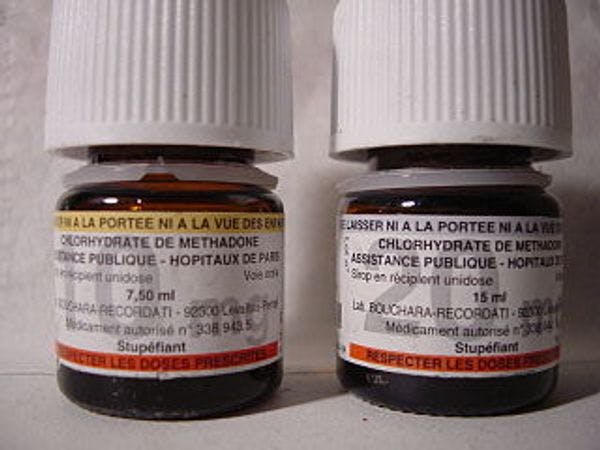Wikimedia Commons - Raziel - CC-BY-SA
Une vaste coalition demande des réformes en profondeur du traitement de substitution à base de méthadone aux États-Unis
Considérant les risques de COVID-19 et d’overdose, la coalition presse les agences fédérales à étendre l’offre et les prescriptions de méthadone, ainsi que l’accès à cette substance. Pour en savoir plus, en anglais, veuillez lire les informations ci-dessous.
By Filtermag
Harm reduction organizations, providers, experts and advocates from across the US are calling on government agencies to eliminate the notoriously burdensome restrictions imposed on medication-assisted treatment (MAT) for opioid use disorder—a move they say would mitigate the dual crises of overdose and coronavirus.
Led by the Urban Survivors Union (USU), a national drug users’ union, the vast coalition has published recommendations on MAT delivery, access and prescriptions during the coronavirus pandemic for the Substance Abuse and Mental Health Administration (SAMHSA), the Drug Enforcement Administration (DEA) and other agencies.
The coalition’s demands come as federal agencies have loosened their stringent MAT rules and guidelines. The DEA has green-lit the use of telemedicine for prescribing buprenorphine and the addition of off-site locations for methadone delivery by opioid treatment programs. SAMHSA has increased the availability of methadone take-home doses.
While the coalition describes these changes as “a step forward,” it notes that many methadone clinics have not implemented the new federal guidelines. Filter has described how clinics may deem that take-homes should only be offered to certain patients who meet stringent and problematic criteria. The coalition calls for all clinics to allow the maximum allowable take-home doses for methadone patients and also details several ways that these guidelines could be modified even further (for example, allowing methadone to be dispensed in non-clinic settings).
“Treatment on demand could end the overdose crisis as well as substantially help flatten the curve of new COVID-19 cases,” said Jess Tilley, a leader with USU. “Both continue to claim lives at a shocking rate every day in this country.”
Some people “are still attending [clinics] daily” USU member and methadone patient Nick Voyles told Filter of Indiana, where he lives. By requiring frequent attendance, these clinics are still “putting patients at risk for exposure” he pointed out. “You can’t social distance and tell someone to go to a clinic everyday.”
Sujets
Régions
Profils associés
- Filter Mag
